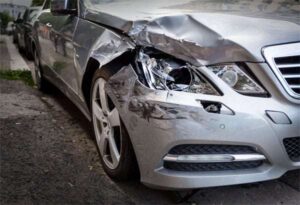ross negligence is a legal term used to describe a severe degree of negligence that goes beyond ordinary carelessness or simple negligence.
Defining Gross Negligence
Negligence is a fundamental concept in tort law, which deals with civil wrongs or breaches of duty that result in harm or injury to others. Negligence occurs when an individual or entity fails to exercise the level of care and caution that a reasonably prudent person would in a similar situation. It forms the basis of many personal injury claims, and the degree of negligence can vary significantly.
Gross negligence, however, represents a heightened degree of negligence. It is characterized by actions or omissions that demonstrate a conscious and voluntary disregard for the safety and rights of others. In other words, gross negligence occurs when a person or entity’s behavior falls significantly below the standard of care expected in a particular circumstance, to the point of being reckless or intentional in nature.
Distinguishing Gross Negligence from Ordinary Negligence
To understand the concept of gross negligence, it’s essential to distinguish it from ordinary negligence:
Ordinary Negligence: In cases of ordinary negligence, a person or entity breaches their duty of care, but the breach is not intentional or willful. It represents a failure to meet the standard of care but does not involve a deliberate or reckless disregard for safety. Ordinary negligence can result from simple mistakes, inadvertent actions, or failures to take reasonable precautions.
Gross Negligence: Gross negligence, on the other hand, is characterized by a conscious and extreme disregard for the safety and rights of others. It often involves reckless behavior or willful misconduct that far exceeds the bounds of ordinary negligence. It demonstrates a wanton indifference to potential consequences.
Implications of Gross Negligence
Gross negligence has significant implications in various areas of law:
Personal Injury Law: In personal injury cases, proving gross negligence is crucial in seeking higher damages. Plaintiffs who can demonstrate that the defendant’s actions or omissions were grossly negligent are more likely to receive punitive damages, which are intended to punish the wrongdoer for their reckless behavior.
Medical Malpractice: In cases of medical malpractice, gross negligence by healthcare providers can lead to severe consequences. It may result from a doctor knowingly administering incorrect treatment or a surgeon performing an operation while under the influence of drugs or alcohol. Gross negligence in the medical field can lead to professional sanctions, including the revocation of medical licenses.
Product Liability: Manufacturers have a duty to produce safe and reliable products. Gross negligence in product design, manufacturing, or quality control can result in dangerous and defective products. If a plaintiff can prove that a manufacturer acted with gross negligence, they may have a stronger case for compensation.
Business and Commercial Law: In business contracts, gross negligence can lead to contract disputes or breaches. For example, if one party intentionally fails to deliver products on time or knowingly misrepresents the quality of their services, it may be considered gross negligence, leading to legal action.
Significance in Determining Liability and Accountability
Gross negligence is significant because it often carries more severe legal consequences than ordinary negligence. In many cases, gross negligence can lead to criminal charges, particularly if it results in serious injuries or fatalities. Beyond criminal liability, it can also result in:
Civil Liability: In civil cases, individuals or entities found grossly negligent can be held financially accountable for the damages they cause. This may include compensatory damages to cover the victim’s losses and punitive damages designed to punish the wrongdoer.
Professional Sanctions: For licensed professionals, such as doctors, lawyers, and engineers, gross negligence can lead to professional sanctions, including license revocation or suspension. This is because professionals are held to a higher standard of care due to their specialized knowledge and expertise.
Criminal Charges: In some cases, gross negligence can lead to criminal charges. For instance, a driver who causes a fatal accident due to reckless and deliberate disregard for traffic laws may face charges of vehicular manslaughter.
Regulatory Consequences: In regulated industries, gross negligence can result in regulatory consequences. Entities found grossly negligent may face fines, penalties, and other regulatory actions.
Conclusion
Gross negligence is a legal concept that represents a heightened degree of negligence characterized by a conscious and extreme disregard for the safety and rights of others. It differs significantly from ordinary negligence, with far-reaching implications in various areas of law, including personal injury, medical malpractice, product liability, and business disputes. Understanding the legal distinction between gross negligence and ordinary negligence is essential for individuals and entities to navigate legal matters, determine liability, and ensure accountability for reckless behavior. It is a cornerstone of the legal system’s commitment to fairness, justice, and the protection of individuals’ rights and safety.
If you need a Personal Injury, or Auto Accident Lawyer, Contact Us Today. For more legal terms on Personal Injury or Auto Accident, visit here.




